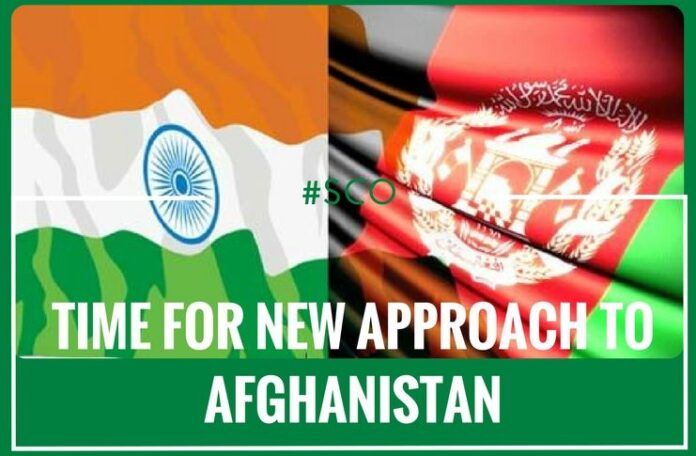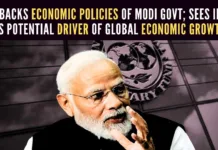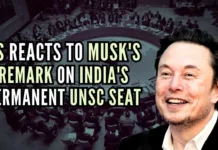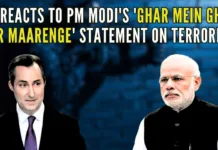
India will have to make radical changes in its Afghanistan policy
[dropcap color=”#008040″ boxed=”yes” boxed_radius=”8px” class=”” id=””]P[/dropcap]rime Minister Narendra Modi is in Astana, Kazakhstan, attending the ‘Shanghai Cooperation Organisation (SCO)’ Summit where India and Pakistan secure full membership of the organisation. The two South Asian neighbours are going to be the seventh and eighth members of the SCO after China, Kazakhstan, Kyrgyzstan, Russia, Tajikistan and Uzbekistan.
SCO started as Shanghai Five (1996) with China, Kazakhstan, Kyrgyzstan, Russia, and Tajikistan and was renamed as SCO in 2001 after including Uzbekistan
In his departure statement, highlighting the areas where SCO membership will help India, Modi said: “We launched the process of full membership in Tashkent meeting of the SCO last year. I look forward to deepening India’s association with the SCO which will help us in economic, connectivity and counter-terrorism cooperation, among other things.”
SCO started as Shanghai Five (1996) with China, Kazakhstan, Kyrgyzstan, Russia, and Tajikistan and was renamed as SCO in 2001 after including Uzbekistan. The idea behind the creation of the organisation was to stop or limit western influence in the Central Asian region.
[dropcap color=”#008040″ boxed=”yes” boxed_radius=”8px” class=”” id=””]W[/dropcap]ith the arrival of US and its North Atlantic Treaty Organisation (NATO) allies in Afghanistan to fight Taliban in 2001, Russia and China both became apprehensive of the long-term impact of their presence in Central Asia. The chances of losing their influence in the region, their geopolitical backyard, were very real.
India will be the only member of the group which has no direct land access to the Central Asian region. India will have to access the region through Iran-Afghanistan
Today, as India joins the organisation with arch rival Pakistan, it is imperative to look at the areas where SCO will provide opportunities to India.
India will be the only member of the group which has no direct land access to the Central Asian region. India will have to access the region through Iran-Afghanistan or Pakistan- Occupied Kashmir-Afghanistan route. Since the PoK route is not available, the Iran-Afghanistan route will be the only route available to India.
With the deteriorating situation in Afghanistan, India will have to risk a lot to derive economic benefit out of SCO. Pakistan with its control over every extremist group in the Af-Pak region and the ongoing China-Pakistan Economic Corridor (CPEC), is in perfect position to exploit every possible economic and strategic opportunity available to it and sabotage every opportunity available to its adversaries (India and Afghanistan).
[dropcap color=”#008040″ boxed=”yes” boxed_radius=”8px” class=”” id=””]W[/dropcap]ith Chinese backing, Pakistan could be the game changer in Central Asia. Recall that during the Afghan war, Pakistan was able to double-cross the US and NATO only because of Chinese assurance of full support to Pakistan in the case of any eventuality. Pakistan’s policy of running with the hares and hunting with the hounds in Afghanistan was only to frustrate Washington and NATO and ensure that they do not have a permanent presence in the country which could have jeopardised long-term Chinese interests in the region.
With this background, India, if it desires to have a meaningful strategic role, will have to ensure a safe and secure route for itself to Central Asia. For this, India will have to make radical changes in its Afghanistan policy.
Recent media reports suggest that there is a proposal for India sending a division size force of around 15,000 troops to Afghanistan under the UN charter. This is a good omen. India cannot remain a benign power. If India believes she has strategic interests in the region, she cannot depend on humanitarian assistance and investment in infrastructure to yield strategic dividends.
Strategic interest requires power to influence and control events. Hence, India needs to have assets to directly influence events in the region of interest. There are many benefits of sending troops to Afghanistan. First, we will be able to ensure survival and strengthening of the government at Kabul.
[dropcap color=”#008040″ boxed=”yes” boxed_radius=”8px” class=”” id=””]S[/dropcap]econd, India will get a chance to eliminate jihadi elements which are active in the region. Third, India will have an opportunity to develop its own assets to influence events in Pakistan, especially in PoK and Balochistan. We will be able to give Pakistan a taste of its own medicine. Fourth, Indian forces can participate in the training of the Afghan armed forces along with the US training programme. India must impart its secular liberal values to the Afghanistan armed forces. This can go long way in providing long-term stability to that nation. A radicalised Afghan National Army is the last thing anyone would want in the region.
The stationed Indian troops will influence events beyond the Durand line. The rise of Pakistan Taliban (December 2007) forced Pakistan to move two corps of the Pakistan Army to its western border from Indian borders, leading to peace on the India-Pakistan border and substantial decrease in infiltration of terrorists in Jammu and Kashmir from Pakistan.
With One Belt One Road (OBOR) and CPEC, Chinese military influence in Pakistan will increase and Indian troops will have implications for Chinese plans for Pakistan. A recently released Pentagon report opines that China will establish military bases in Pakistan and India cannot remain a mute spectator in such a situation.
By committing troops in Afghanistan, Indian will force Pakistan to move substantial assets from its eastern borders to the Pak-Afghan border in the west. The Pakistan Army is primarily stationed towards the India border with just two corps in the west. In 2008-9, with the rise of TTP, Pakistan was forced to deploy two corps to Khyber Pakhtunkhwa. This restrained Pakistani activities along the Indian border and Kashmir saw half a decade of relative peace. By deploying an infantry division with support arms, India can force Pakistan to commit more troops towards its western border.
[dropcap color=”#008040″ boxed=”yes” boxed_radius=”8px” class=”” id=””]P[/dropcap]akistan will definitely target Indian troops in Afghanistan through its proxies, but that would be similar to the situation in Jammu and Kashmir. One can argue that J&K is Indian territory and unlike Kashmir, Pakistan can bring hundreds of terrorists to overwhelm Indian forces, akin to what India faced in Sri Lanka. But unlike the 1980s, the world is becoming multipolar and everyone has to defend his own turf.
Since India is a regional power surrounded by enemies, it has to be an assertive power. It cannot afford to be a passive nation with soft power. The world is going through a rapid transformation and the old order has passed; every country is on its own. India cannot afford to be reluctant to operate beyond its borders. India has hard power and it must be used to secure strategic interests.
Note:
1. Text in Blue points to additional data on the topic.
2. The views expressed here are those of the author and do not necessarily represent or reflect the views of PGurus.
- An interview withLt Gen Narsimhan - July 17, 2017
- Nation can’t pay for Mamata’s short sighted politics - July 8, 2017
- Time for New Approach to Afghanistan - June 14, 2017











Excellent article, new insights
I don’t think this article makes any sense.First of all to get involved in Afganistan, we need to be sure what the consequences will be.It is all right that India has aspirations to be world power but the crooked congis thro’ their corrupt third rate rule has made India a banana republic.We need to address dire issues facing this country the top of which in my opinion is corruption.Unless this cancer is addressed, our nation will be crippled totally in the next 30 years.Already in health,education,housing employment, things have deteriorated and the haves / havenots gap has widened substantially.Our have nots are below subsaharan afrika in all aspects of human development index.We must arrest this voyerism without further ado.I disagree totally on DrSwamy’s thought process in this which just reflects his adventurism.If DrSwamy has been young and if he gets to be in a position of power especially as FM, then probably after 10 years, we may be in a position to have strategic adventures.